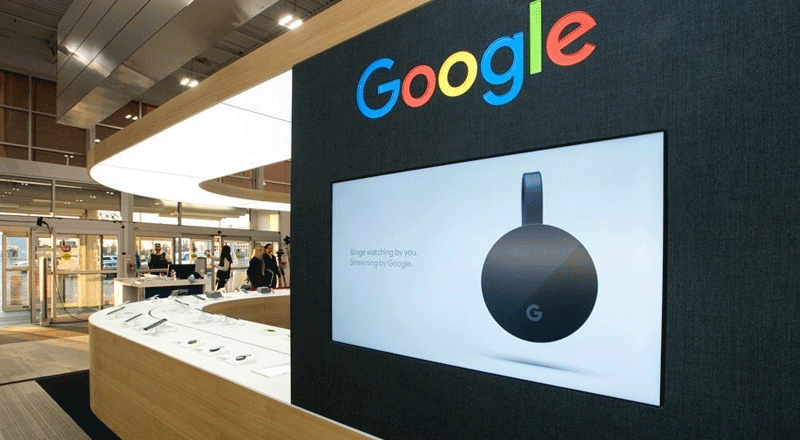Google’s Big Bet on India
Tech giant Google is gearing up to establish its first-ever retail stores outside the United States, selecting India as the launchpad for its global retail expansion. With India being a key growth market, Google is finalizing store locations in New Delhi and Mumbai, marking a significant step in its competition with Apple in the premium smartphone segment.
Despite having a strong digital presence and relying on authorised retail partners, Google aims to replicate the success of Apple’s brick-and-mortar strategy, which has helped the Cupertino-based company dominate the high-end smartphone market. This move signals Google’s aggressive push into India’s premium retail landscape, where it seeks to increase brand visibility and customer engagement.
Expanding Google’s Retail Footprint: Why India?
Google currently operates only a handful of retail stores in the U.S., primarily selling its Pixel smartphones, Pixel Buds, and Pixel Watches. However, India’s booming smartphone market, with over 712 million users, presents a lucrative opportunity for the company.
The Indian government’s push for local manufacturing, coupled with Google’s recent decision to produce Pixel smartphones in India, makes this the ideal time to establish physical retail spaces. By offering customers a direct experience with its products, Google hopes to enhance brand loyalty and compete more effectively with established players like Apple and Samsung.
Finalizing Locations: Mumbai & New Delhi Take the Lead
According to sources familiar with the matter, Google is in the advanced stages of securing retail spaces in or around India’s: Financial capital, Mumbai, and National capital, New Delhi
Initially, the company also considered Bengaluru, India’s tech hub, but has prioritized Delhi and Mumbai due to their high consumer footfall. One potential site under consideration is Gurugram, a prominent business district near New Delhi that hosts offices for global corporations like Uber and Meta, along with high-end retail brands like Uniqlo.
The first set of Google retail stores is expected to be around 15,000 square feet in size, offering an immersive shopping experience. However, the final launch timeline is uncertain, with regulatory approvals and compliance processes still underway.
Taking on Apple’s Retail Dominance in India
Google’s move is widely seen as a direct challenge to Apple, which opened its first company-run stores in Mumbai and New Delhi in 2023. Apple currently enjoys a dominant 55% market share in India’s premium smartphone segment, whereas Google’s Pixel lineup holds a mere 2% share.
With Pixel devices priced between $370 and $2,000, Google is targeting a segment of Indian consumers who seek high-end smartphones but may consider alternatives to Apple’s offerings (priced between $520 and $2,130). Google aims to strengthen its position in India by not only selling hardware but also creating a brand ecosystem through a premium retail experience.
Aligning with India’s ‘Make in India’ Vision
Google’s expansion aligns with India’s “Make in India” initiative, which encourages global brands to set up local manufacturing. The company has already announced plans to manufacture Pixel smartphones in India, and opening retail outlets is a natural extension of this strategy.
A local manufacturing presence will not only help Google reduce import costs and regulatory hurdles but also build stronger relationships with Indian consumers. The stores will provide hands-on access to its Pixel ecosystem, including smartphones, smartwatches, earbuds, and future AI-driven products.
Challenges Ahead: Regulatory Hurdles & Market Competition
While Google is moving ahead with its India retail plans, it faces regulatory and legal challenges in the country. The company is currently battling multiple antitrust cases, including:
- Issues related to its in-app billing system
- Allegations of abusing its market position in the smart TV segment
Additionally, Google recently saw the resignation of its India head of public policy, marking the second high-profile departure in two years. These challenges highlight the complexities of navigating India’s regulatory and competitive landscape, even for tech giants.
A Transformational Move for Google in India
Google’s decision to launch retail stores in India marks a significant milestone in its global retail expansion strategy. By targeting key cities like Mumbai and New Delhi, the company aims to boost its brand presence, improve direct customer engagement, and increase Pixel smartphone adoption in India’s premium market.
While Apple remains the dominant player, Google’s physical stores could pave the way for long-term growth, provided the company successfully navigates regulatory hurdles and consumer preferences.
As India’s smartphone market continues to evolve, Google’s retail strategy will be closely watched—not just as a business expansion move, but as a potential game-changer in the Indian tech landscape.
(With inputs from agencies)





